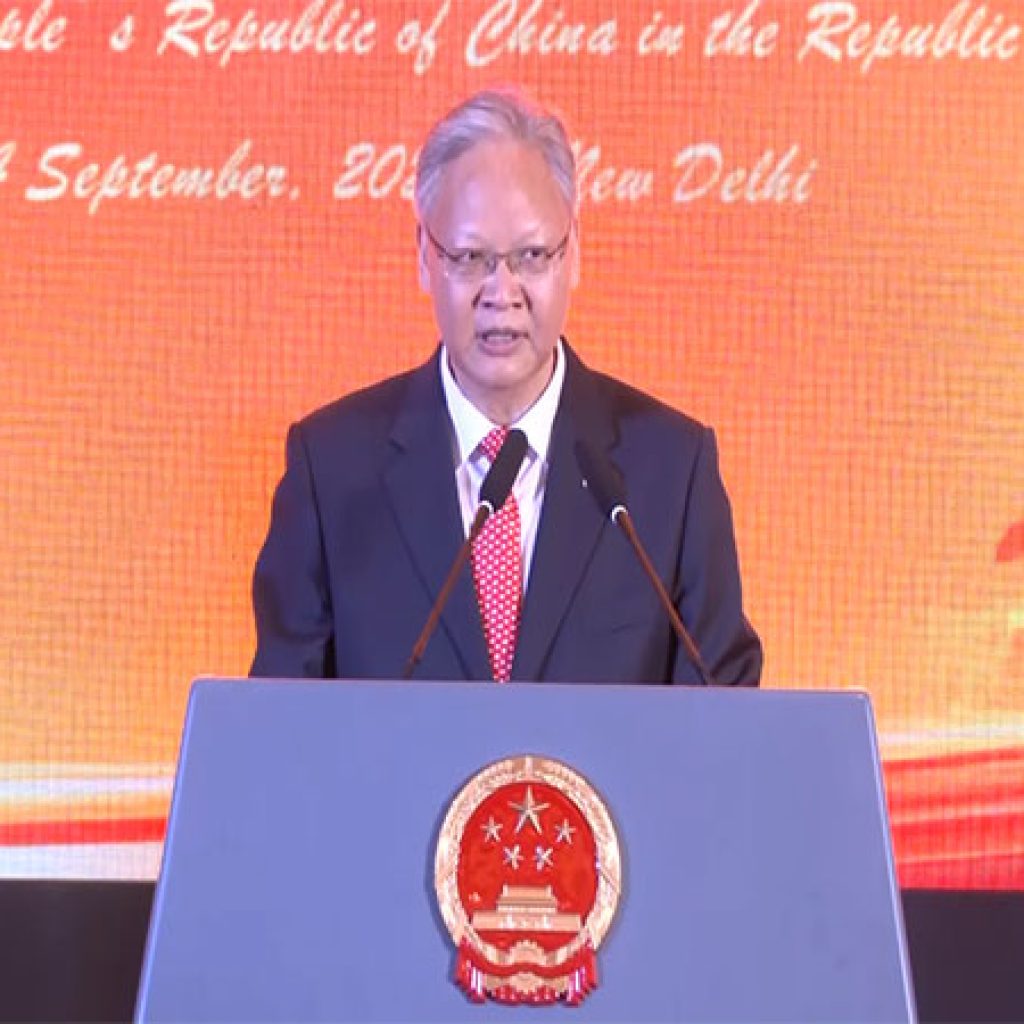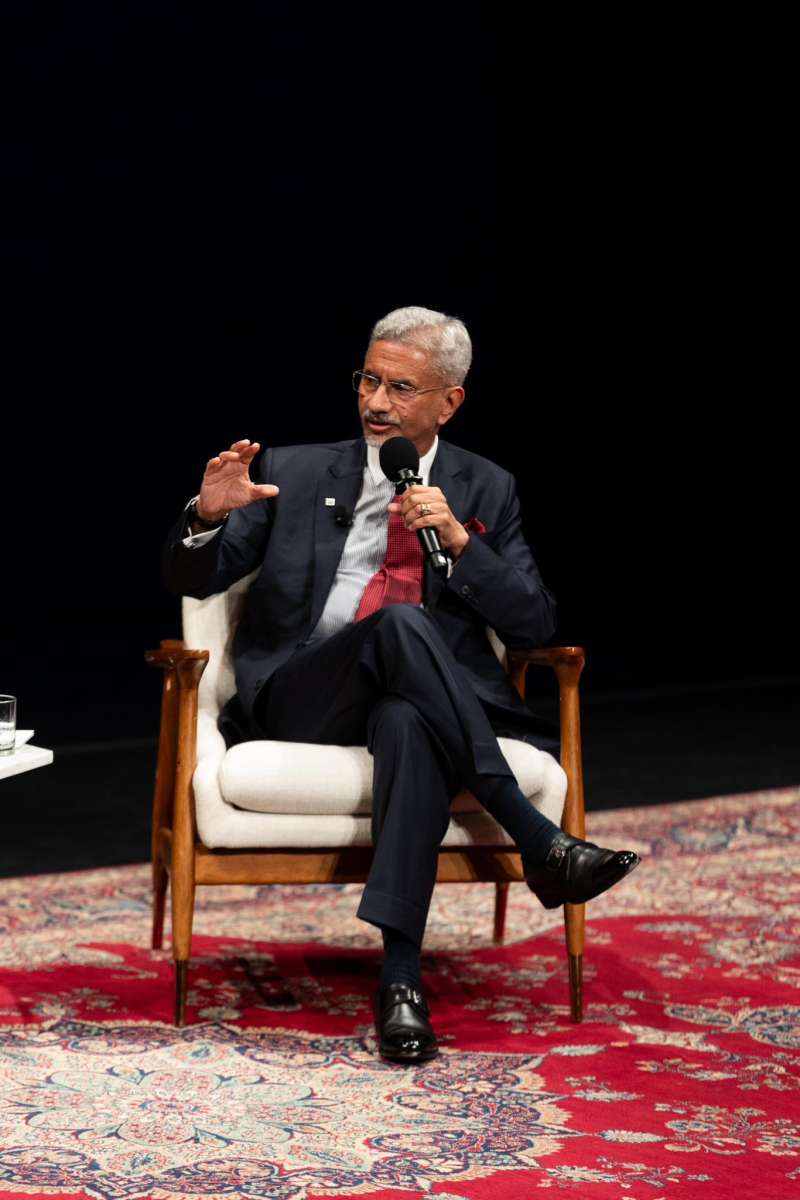Jaishankar said Asia is at the “cutting edge of change” and that India is the part leading that change….reports Asian Lite News
External Affairs Minister S Jaishankar enunciated that in a “multipolar” world where change has been stretching the fabric of the global order, the key to the future of Asia as well as the world lies in the relationship between India and China.
During his opening address at the Asia Society at the Asia Society Policy Institute in New York on Tuesday, Jaishankar said Asia is at the “cutting edge of change” and that India is the part leading that change.
“Asia is very much at the cutting edge of that change. Within Asia, India is part of leading that change. But that change is today stretching the fabric of the global order…I think the India-China relationship is key to the future of Asia. In a way, you can say if the world is to be multipolar, Asia has to be multipolar. And therefore, this relationship will influence not just the future of Asia but, in that way, perhaps the future of the world as well,” he said.
He further said that India has to prepare to rise amid volatility and unpredictability.
“India which is rising, has to prepare to rise amidst volatility and unpredictability. Typically, when countries rise, when big powers rise, they hope for congenial circumstances,” he added
In his address, Jaishankar picked three words to describe the changing world.
He said that to describe the world, the word “rebalancing” was an obvious choice and said that Asia played a key role in that process.
“Now when I speak about rebalancing, I think Asia has been very much key to that rebalancing when we talk. If one looks, for example, at the last top 20 economies of the world, there are many more Asian economies in that than there were a few decades ago. And even if one looks among the 20, the Asian ones have really risen much more strongly and impactfully. And among them, is India, which was a decade ago the 10th largest economy in the world, currently the 5th, likely to be the third by the end of the decade,” he stated.
Jaishankar said that the other word was “multipolar,” as it was the consequence of the rebalancing as it overlaps and convergences the international politics impacting the global architecture that was there during the initial years of the United Nations.
“The word that would occur to me when I again tried to describe the world would be multipolar and this is a consequence of rebalancing in the sense that there are many more independent centres of decision-making in the world and what it does is it really shifts international politics more in the direction of finding convergences and overlaps, and that actually has an impact on the global architecture that from what was in the initial years of the UN, a very much more bipolar world briefly went into unipolarity,” he explained.
The third word that Jaishanakar used to describe the world was plurilateralism. He said it was an ugly word, but it describes a world beyond the bilateral relations.
“A third word that would occur to me is plurilateralism. It’s a very ugly word, but it in a sense describes a world beyond bilateral relations, but in short, a multilateral one where countries form combinations based on these convergences and overlaps that I’ve talked about,” he said.
“I think this is the latest step in the growth of that platform now rebalancing multipolar plurilateralism,” he added. (ANI)

Sino-Indian ties have improved, says Feihong
China’s Ambassador to India Xu Feihong on Tuesday said that China-India relations have enjoyed “momentum of improvement” since the beginning of this year and the two sides maintain high-level communication.
Speaking at an event here to celebrate 75th anniversary of Foundation of People’s Republic of China, the Chinese envoy said the relationship between his country and India has transcended bilateral scope and bears regional and global significance.
“Since the beginning of this year, China-India relations have enjoyed the momentum of improvement and development. The two sides maintain high-level communication,” Xu Feihong said.
He said Chinese Premier Li Qiang sent a congratulatory message to Prime Minister Narendra Modi on his reelection.
Chinese Foreign Minister Wang Yi met with External Affairs Minister S Jaishankar and National Security Advisor Ajit Doval.
He said the two countries maintained dialogues on border issues through diplomatic and military channels.
External Affairs Minister S Jaishankar said earlier this month that 75 per cent of disengagement problems with China have been sorted out but the two nations “still have some things to do.” He also underlined how India and China never had an easy relationship in the past.
In his remarks, Xu Feihong said China has become India’s largest trading partner.
“During the first eight months of this year, the bilateral trade volume reached USD 92.5 billion with a year-on-year increase of 4.1 per cent. The personnel exchanges between the two countries have increased. Since last year, the Chinese Embassy and Consulates-General in India have issued more than 400,000 visas to the Indian people,” he said.
“As the two largest developing countries and major emerging economies in the world, the relationship between China and India has transcended bilateral scope and bears regional and global significance. On the basis of the principles of mutual respect, mutual understanding, mutual trust, mutual accommodation and mutual accomplishment, we are willing to work with the Indian side to advance bilateral relations on a healthy and stable track, and work together to build a community with a shared future for mankind. Firstly, we should follow the right direction and enhance mutual respect and mutual trust,” he added.
The Chinese envoy said President Xi Jinping and Prime Minister Narendra Modi have reached important consensus that China and India are not rivals or threats to each other, but are partners in cooperation and development opportunities.
“This provides a clear direction for our bilateral relations. We should firmly implement the important consensus reached by the two leaders, correctly view each others development and strategic intentions and mutually accommodate each other’s core interests and major concerns. It is normal for neighbors to have differences, the key is how to view and handle them correctly. China and India are two ancient civilizations. I am confident that we have enough wisdom and capability to properly handle the differences and find a solution acceptable to both sides,” he said.
He said India and China should strengthen multilateral coordination for the benefit of the Global South.
“Both China and India are important members of the Global South and important forces in a multipolar world. When China and India join hands in cooperation, it will benefit not only the two countries but also the entire Asia and the world at large,” he said.
“China stands ready to strengthen communication and cooperation with India in international and regional affairs, jointly advocate an equal and orderly multipolar world and a universally beneficial and inclusive economic globalization. The ‘Dragon-Elephant Tango’ will definitely promote the common development and prosperity of the Global South,” he added. (ANI)
ALSO READ: Jaishankar holds talks with G4 leaders on UNSC reform

Leave a Reply